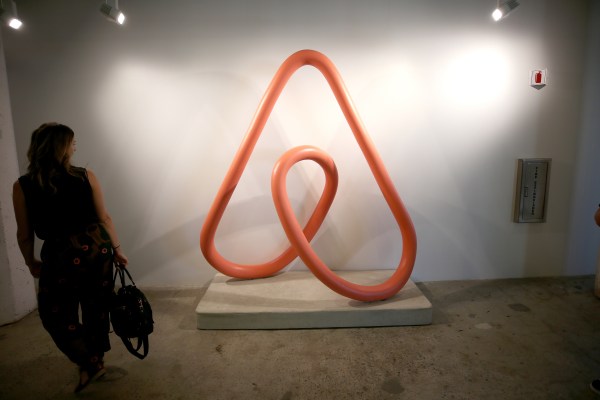Airbnb is tweaking its landing page and introducing new features all aimed at longer-term stays, as the online rental marketplace looks to capitalize on a growing segment of its business.
The changes are being rolled out just days after Airbnb CEO Brian Chesky said the company had raised $1 billion and laid out plans to direct its attention and new funds toward three core products: hosts, long-term stays and Airbnb experiences. Airbnb raised the $1 billion in debt and equity from private equity firms Silver Lake and Sixth Street Partners.
Chesky acknowledged Monday that while the desire to connect and travel has been reinforced during this time, the “way it manifests will evolve as the world changes.”
Airbnb is betting how and where people work will evolve; in the company’s view, it’s heading toward longer-term stays. Recent data shared by Airbnb supports that view. In the last two weeks of March, the company saw the number of guests booking longer-term stays within their same cities nearly double. Meanwhile, 80% of Airbnb hosts now accept longer-term stays and about half of the company’s active listings now provide discounts for stays of one month or longer.
On Thursday, Airbnb will change its main landing page to highlight longer-term stays. The company introduced a new notification for hosts to educate them on the benefits of longer-term stays, as well as a guide to update their listings to accept these types of bookings. Airbnb has decided to make that a permanent feature in the portal that hosts use to manage their listings.
When the new landing page launches Thursday, Airbnb will have more than 1 million listings that offer monthly stays, according to the company. These homes are equipped with the kinds of amenities required for a longer stay, such as kitchens, laundry facilities and Wi-Fi.
The COVID-19 pandemic, which has disrupted travel and sparked a need among healthcare and other essential workers to find places to stay in their own cities, has contributed to that growth.
However, it appears this trend was already afoot in 2019. According to Airbnb, one in every seven nights booked in 2019 was for a longer-term stay.
The push into longer-term stays will likely butt up against property management companies that handle traditional one-year leases. There’s already some evidence that Airbnb’s longer-term stays are looking more like traditional rentals.
The company said it’s seeing more people, such as students, doctors and nurses in residency, or others in long term work assignment turning to Airbnb to find housing for six to nine-month stays. Already in 2020, Airbnb said it has seen bookings for more than 600 days; the longest booking made so far this year was more than 700 days.
Whether this push towards long term rentals will lead to legal action is unclear. The company has grappled with cities and tourism associations in courtrooms in the U.S. and Europe. Airbnb cleared an important legal hurdle in December when Europe’s top court deemed it to be an online platform that connects people looking for short-term accommodation, rather than a full-blown estate agent. The ruling could make it harder for regulators to force Airbnb to comply with local property laws.
